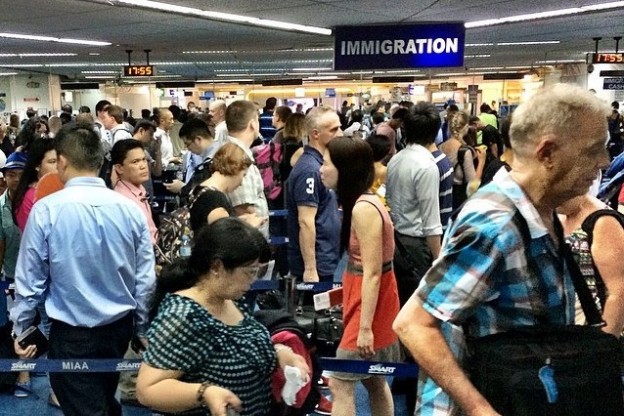Manila: The spate of terror attacks and threats of tighter immigration rules are making conditions more difficult for overseas Filipino workers.
Bangko Sentral ng Pilipinas (BSP) Deputy Governor Diwa Guinigundo has admitted there was “serious concern” for the welfare and security of nearly 11 million Filipinos living and working abroad, reported CNN Philippines.
Last week, suicide bombers attacked the bustling Ataturk Airport in Istanbul, Turkey, claiming the lives of more than 40 people, the report said.
Twenty more people — all foreigners — were reportedly killed on July 2 after militants held them hostage in a cafe in Dhaka, Bangladesh.
The next day, a truck bomb detonated in Baghdad, Iraq, as Muslims broke their fasts after Ramadan. The death toll is nearing 300.
ISIS has claimed responsibility for the Istanbul and Baghdad bombings. This followed other devastating attacks carried out by the terror group — particularly on the Brussels airport and train station in March, and all across Paris last November.
“Based on some field survey reports from the Department of Foreign Affairs, overseas Filipino workers might opt to return to Manila while this tension is ongoing,” Guinigundo reportedly told CNN Philippines.
Security isn’t the only cause for concern. The UK voted to leave the European Union (EU) largely on the back of immigration fears. Campaigners of the so-called “Brexit” promised to cut back on foreign workers.
In the United States, Republican presidential candidate Donald Trump has also been pushing for stricter rules on immigrants.
BSP Governor Amando Tetangco, Jr. reportedly said it would be best to take a broader view of these developments overseas, particularly the Brexit.
“We’ll have to see what changes in immigration agreements could result from the Brexit. Our expectation is that there should be a reasonable transition in the implementation of such changes,” he was quoted as saying.
The Brexit — feared to be a long, protracted process as the British and EU governments untangle 40 years worth of laws and trade pacts — could also usher in a slowdown in Europe, which accounts for about 20% of the money sent home by OFWs, said the news portal.
Altogether, Guinigundo said, there could be some “backlash in terms of lower remittances going forward.”
Remittances are projected to increase 4 percent this year, he reportedly said, adding that there will still be growth, albeit a much slower one, compared to previous years.
Remittances are one of the main reasons the Philippines has become one of the fastest-growing economies in Asia. They fuel consumption, which makes up 70 percent of the gross domestic product. They also bring in much-needed dollars, which act as a buffer from instability abroad, reported CNN Philippines.
OFWs sent home a total of $25.8 billion in 2015, a 4.6 percent rise from the year before, the report said.




